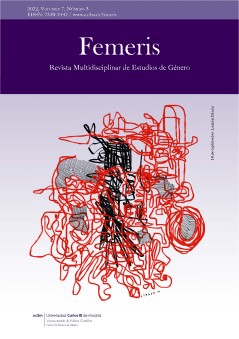Graphic humor and gender stereotypes in social networks
Relationship with the identity construction and subjective well-being of women
Abstract
The present investigation of exploratory scope was carried out under the framework of social psychology and the paradigmatic and epistemological framework of critical constructionism, whose objective was understand the relationship between graphic humor on the identity and subjective well-being of women users of Facebook and Instagram from different Spanish-speaking countries. Objective was achieved by the following of a qualitative methodological design guided by netnography, content analysis and critical discourse analysis (ACD), techniques that were adjusted and designed to meet the needs of the investigation and the specific objectives of the same. Initially, it evidences that women are being represented through pieces of graphic humor published on these social networks and those are perpetuating social and gender stereotypes socially accepted. It put the woman at a disadvantage compared to the male gender, because women are representated like a sexual object, affecting their subjective well-being and identity construction. On the other hand, it evidences how the same graphic humor has been consolidated as a means of expression for them, like a discursive resistance, as a way of make a complaint by presenting counter-narratives and strengthening female sisterhood; The results allow to contribute and ratify what was stated by the majority of research in the line of gender studies, but this time from psychology.
Downloads
FEMERIS es una revista del Instituto de Estudios de Género pertenenciente a la Universidad Carlos III.
Los textos publicados en esta revista están –si no se indica lo contrario– bajo una licencia Reconocimiento-Sin obras derivadas 3.0 España de Creative Commons. Permite Atribución-NoComercial-SinDerivadas 3.0 España.
La licencia completa se puede consultar en:http://creativecommons.org/licenses/by-nd/3.0/es/deed.es




